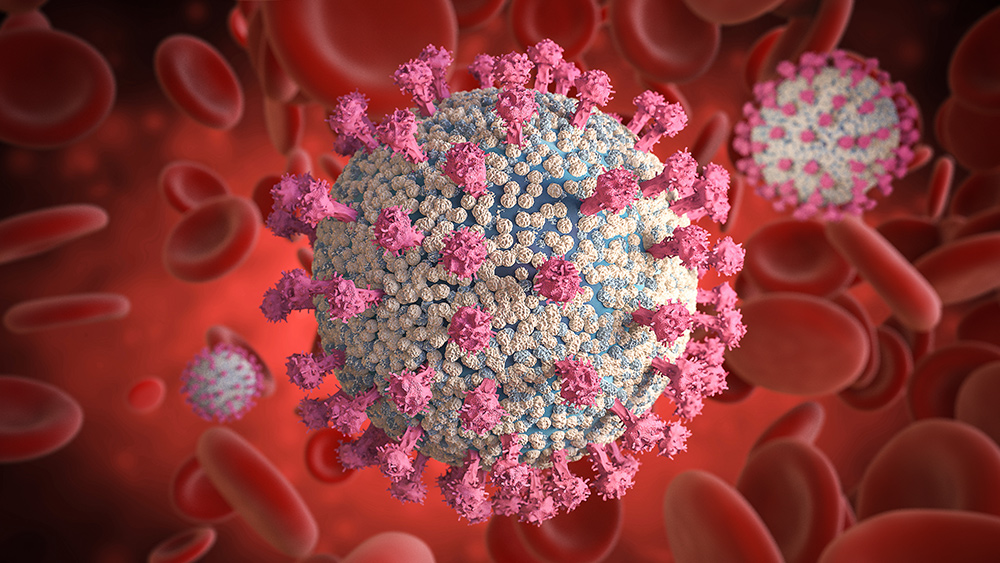Northwestern’s 25-year SuperAger study proves cognitive decline can be avoided
08/12/2025 / By Cassie B.

- Mainstream medicine has long claimed memory loss and brain shrinkage are inevitable with aging, but Northwestern University’s research on “SuperAgers” proves otherwise—some maintain sharp memories well into old age.
- SuperAgers’ brains shrink at half the rate of typical adults, with key regions like the anterior cingulate cortex even thicker than in younger individuals, defying conventional aging expectations.
- The study began with an 81-year-old woman’s remarkably preserved brain, showing minimal protein tangles and healthy neurons, sparking a 25-year search for similar individuals with exceptional memory.
- SuperAgers share strong social bonds, with research linking deep relationships to reduced brain inflammation and higher levels of empathy-linked neurons, highlighting connection as neuroprotective.
- The findings emphasize lifestyle choices—social engagement, exercise, mental challenges, stress management, and clean eating—as critical to maintaining cognitive health, debunking the myth of inevitable decline.
For decades, mainstream medicine has pushed the narrative that memory loss and brain shrinkage are unavoidable consequences of aging. Doctors shrug, Big Pharma profits, and millions resign themselves to a future of cognitive decline. But groundbreaking research from Northwestern University shatters this fatalistic myth by revealing that some individuals, dubbed “SuperAgers,” maintain razor-sharp memories well into their 80s and beyond, rivaling people decades younger.
After 25 years of studying these exceptional minds, scientists discovered SuperAgers’ brains defy conventional aging patterns. Their brain tissue shrinks at half the rate of typical adults, and one critical region—the anterior cingulate cortex, linked to motivation and social bonding—is even thicker than in young adults. The findings, published in Alzheimer’s & Dementia, expose the lies of the medical-industrial complex: Cognitive health isn’t just about luck or genetics. It’s about lifestyle choices, social connections, and resisting the toxic stressors of modern life.
The brain that defied expectations
The SuperAger study began with an 81-year-old woman’s donated brain in the 1990s. Researchers expected the usual signs of decay—protein tangles, cellular damage—but instead found a shockingly youthful organ. Her memory center had just one protein tangle, compared to dozens in most elderly brains. “Her hippocampus was beautiful,” recalled Dr. Tamar Gefen, a Northwestern neuropsychologist. “The neurons were plump and healthy.”
This discovery launched a quest to identify more SuperAgers—individuals over 80 who ace memory tests, recalling 14 out of 15 words after a delay, while peers average just five. Of nearly 2,000 candidates screened, fewer than 10% qualified. The oldest participant lived to 111, her mind still vibrant.
The power of social resilience
What sets SuperAgers apart? While Big Pharma peddles pills, the answer lies in nature, not labs. SuperAgers share one undeniable trait: deep social bonds. They host gatherings, volunteer, and nurture relationships—a dramatic contrast to the isolation epidemic fueled by lockdowns and digital addiction.
“You don’t see a lot of detached SuperAgers,” Gefen noted. Research confirms social engagement reduces inflammation, a key driver of brain decay. SuperAgers also exhibit more von Economo neurons—linked to empathy and social intelligence—found in species like whales and elephants. These biological safeguards suggest connection isn’t just comforting; it’s neuroprotective.
Natural strategies for brain longevity
The study demolishes the myth that aging equals decline. Instead, it reveals actionable steps to safeguard cognition:
- Prioritize relationships: SuperAgers thrive on community. Reject isolation; cultivate friendships and intergenerational ties.
- Move daily: Physical activity, even walking, boosts blood flow and neural growth.
- Challenge your mind: Learning new skills such as languages and instruments builds cognitive reserve.
- Manage stress: Chronic stress shrinks the brain. Meditation, nature, and laughter counteract cortisol’s damage.
- Eat clean: Omega-3s, antioxidants, and organic produce combat inflammation.
Your brain is under your control
The SuperAger research is a wake-up call: Cognitive decline isn’t destiny. While corrupt institutions profit from fear, these findings empower individuals to take charge of their brain health naturally.
As Alzheimer’s cases skyrocket—fueled by processed food, environmental toxins, and societal fragmentation—SuperAgers light a path forward. Their lives testify that freedom, purpose, and human connection are the ultimate medicines. Will you surrender to the decline narrative or fight for the sharp, vibrant mind you deserve?
Sources for this article include:
Submit a correction >>
Tagged Under:
aging, aging secrets, Brain, brain function, cognitive decline, dementia, good health, longevity, memory, mind body science, natural health, prevention, superagers
This article may contain statements that reflect the opinion of the author
RECENT NEWS & ARTICLES
COPYRIGHT © 2017 SCIENTIFIC NEWS




















